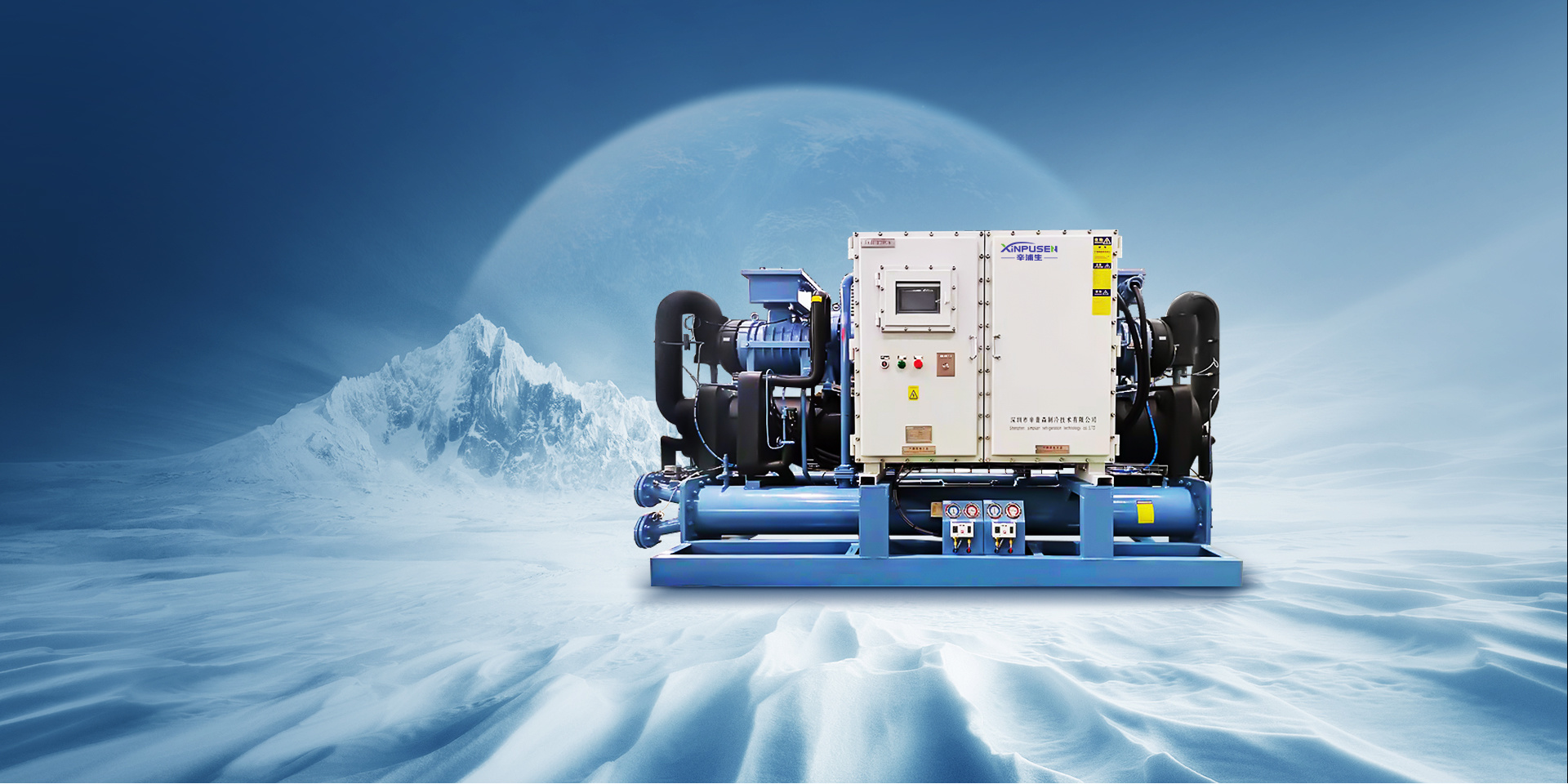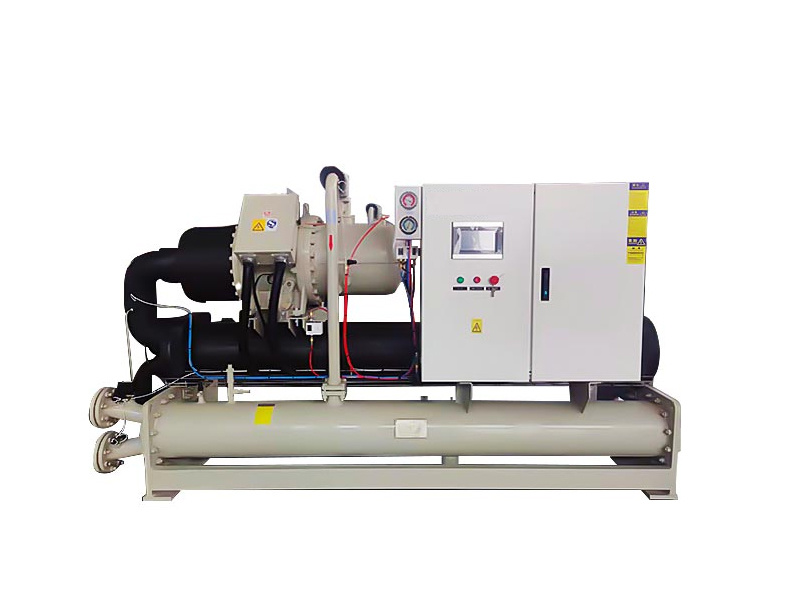The Impact of Air-Cooled Low Temp Freezer Units on Product Longevity
2025-09-29 10:20
The Impact of Air-Cooled Low Temp Freezer Units on Product Longevity
Table of Contents
- Introduction to Air-Cooled Low Temp Freezer Units
- Understanding Product Longevity in Refrigeration
- Key Benefits of Air-Cooled Low Temp Freezer Units
- Applications of Air-Cooled Low Temp Freezer Units Across Industries
- Technical Specifications and Performance Metrics
- Maintenance Best Practices for Optimal Performance
- Future Trends in Air-Cooled Low Temp Refrigeration
- Conclusion
- Frequently Asked Questions about Air-Cooled Low Temp Freezer Units
Introduction to Air-Cooled Low Temp Freezer Units
Air-cooled low-temperature freezer units are essential components in various industries, particularly where product preservation is vital. These systems utilize air as the cooling medium, providing efficient and reliable refrigeration solutions. The longevity of products stored in these freezers depends significantly on the technology and design of the units themselves. In this article, we will explore how these freezer units impact product longevity, focusing on their benefits, applications, and maintenance practices.
Understanding Product Longevity in Refrigeration
Product longevity refers to the duration and quality of storage during which products remain usable or saleable. In refrigeration, this concept is crucial as it influences both the economic viability and safety of the stored materials. Factors such as temperature stability, humidity control, and airflow are critical in preserving product integrity. Understanding these variables allows for the optimization of storage conditions, ensuring that products remain fresh and effective for extended periods.
Key Factors Affecting Product Longevity
Several elements contribute to product longevity in refrigeration:
- **Temperature Control**: Consistency in temperature is vital for preventing spoilage.
- **Humidity Levels**: Proper humidity control can prevent ice formation and maintain product quality.
- **Airflow Distribution**: Effective airflow ensures uniform cooling, minimizing temperature fluctuations.
Key Benefits of Air-Cooled Low Temp Freezer Units
Air-cooled low-temperature freezer units offer numerous advantages that contribute to product longevity:
1. Energy Efficiency
These units are designed to operate efficiently, reducing energy consumption and operational costs. Their design minimizes heat generation, which is essential for maintaining low temperatures that extend product shelf life.
2. Minimal Maintenance Requirements
With fewer mechanical components than other refrigeration systems, air-cooled freezers require less maintenance. This reliability ensures that products remain stored under optimal conditions without frequent interruptions.
3. Environmentally Friendly Operations
Air-cooled systems utilize natural air for cooling, which is a more sustainable approach compared to water-cooled systems. This aspect appeals to environmentally conscious businesses looking to reduce their carbon footprint.
4. Flexibility in Installation
These units can be easily installed in various settings, from small retail spaces to large industrial facilities. Their versatility allows businesses to customize their refrigeration needs effectively.
Applications of Air-Cooled Low Temp Freezer Units Across Industries
Air-cooled low-temperature freezer units are utilized in numerous sectors, demonstrating their versatility and effectiveness:
1. Food and Beverage Industry
In the food industry, maintaining the integrity of perishable items is paramount. Air-cooled freezers ensure that frozen goods remain at consistent temperatures, preserving freshness and preventing spoilage.
2. Pharmaceutical Industry
Pharmaceutical products often require specific temperature ranges to maintain efficacy. Air-cooled low-temperature freezers provide a reliable solution for storing sensitive medications and vaccines.
3. Chemical Manufacturing
Certain chemicals necessitate precise temperature control to ensure safety and longevity. Refrigeration systems in this sector are crucial for maintaining product viability throughout the storage period.
4. Research Laboratories
In research settings, air-cooled freezers are employed to store biological samples and other sensitive materials, ensuring that they remain stable for long-term studies.
Technical Specifications and Performance Metrics
When choosing an air-cooled low-temperature freezer unit, several technical specifications should be considered:
1. Temperature Range
The operational temperature range is critical for determining the suitability of a freezer for specific products. Units designed for low-temperature applications typically operate between -20°C to -40°C.
2. Cooling Capacity
The cooling capacity, measured in BTUs or kilowatts, indicates the unit's ability to maintain low temperatures effectively. It is essential to select a unit with sufficient capacity for the intended storage volume.
3. Energy Efficiency Ratings
Energy efficiency ratings, such as the Energy Star certification, can guide users toward choosing systems that lower operational costs while being environmentally responsible.
Maintenance Best Practices for Optimal Performance
To ensure that air-cooled low-temperature freezer units operate efficiently and maximize product longevity, proper maintenance is essential:
1. Regular Inspections
Conduct routine inspections to identify potential issues before they escalate. Look for signs of wear and tear, leaks, or unusual noises.
2. Cleaning the Condenser Coils
Dirty condenser coils can hinder the unit's efficiency. Regularly clean these coils to maintain optimal airflow and cooling performance.
3. Monitoring Temperature and Humidity
Utilize monitoring devices to keep track of temperature and humidity levels. This data helps ensure that products are stored under the best conditions.
4. Professional Servicing
Engage professionals for periodic servicing to ensure all components are functioning correctly and to enhance the unit's longevity.
Future Trends in Air-Cooled Low Temp Refrigeration
As technology evolves, so do refrigeration systems. Future trends for air-cooled low-temperature freezers include:
1. Enhanced Energy Efficiency Technologies
Innovations in compressor design and materials are expected to further improve energy efficiency, benefiting both cost and environmental impact.
2. Smart Refrigeration Systems
Integration of IoT devices will enable real-time monitoring and control of freezer units, allowing users to optimize performance and detect issues promptly.
3. Environmentally Friendly Refrigerants
The shift towards using natural refrigerants, which have a lower global warming potential, will likely gain momentum, aligning with global sustainability goals.
Conclusion
Air-cooled low-temperature freezer units play a pivotal role in enhancing product longevity across various industries. Their efficient operation, flexibility, and minimal maintenance needs make them a preferred choice for businesses focused on preserving quality. By understanding the benefits, applications, and best practices associated with these freezer units, organizations can make informed decisions that ensure the optimal storage of their products. As we move towards a more sustainable future, innovations in refrigeration technology will continue to shape the landscape, further extending the longevity of stored products.
Frequently Asked Questions about Air-Cooled Low Temp Freezer Units
1. What is the typical temperature range for air-cooled low-temperature freezers?
The typical temperature range for these freezers is generally between -20°C to -40°C, depending on the unit's specifications.
2. How often should maintenance be performed on air-cooled low-temperature freezers?
Regular maintenance should be performed at least once a year, but more frequent checks may be necessary depending on usage and environmental conditions.
3. Are air-cooled low-temperature freezers more energy-efficient than water-cooled models?
Yes, air-cooled units typically have lower operational costs due to reduced water usage and are often more energy-efficient.
4. Can air-cooled low-temperature freezers be used in outdoor settings?
While some air-cooled freezers can be installed outdoors, it is essential to ensure they are designed for such environments and protected from extreme weather conditions.
5. What are the advantages of using natural refrigerants in air-cooled low-temperature freezers?
Natural refrigerants have a lower global warming potential and are more environmentally friendly, aligning with sustainability initiatives while maintaining effective cooling performance.
Previous: Understanding the Benefits and Functionality of Double-Stage Low Temperature Chillers
More Information
2026-03-02
Understanding the Advantages of Water-Cooled Screw Chillers for Industrial Applications
2026-02-24
quality air cooled industrial chiller
2026-02-23
Essential Insights into Air Cooled Industrial Chillers: Efficiency, Selection, and Maintenance
2026-02-16
What to Expect During the Installation of Air Cooled Industrial Chillers: A Comprehensive Guide
2026-03-02
Understanding the Advantages of Water-Cooled Screw Chillers for Industrial Applications









 CN
CN EN
EN


